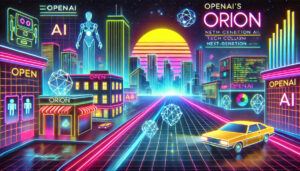OpenAI’s Orion was touted as the next significant leap in large language models (LLMs). Early whispers within the tech community suggested that Orion could be up to 100 times more powerful than its predecessor, GPT-4. Such claims naturally generated excitement, with many envisioning a model capable of unprecedented reasoning and understanding.
In October 2024, The Verge reported that OpenAI plans to launch Orion by December, initially granting access to select partners for product development before a broader release. The report indicated that Microsoft, a major OpenAI partner, is preparing to host Orion on its Azure platform as early as November.
However, OpenAI CEO Sam Altman responded to these claims by labeling them as “fake news,” and an OpenAI spokesperson stated, “We don’t have plans to release a model code-named Orion this year.”
Source: X
The Reality CheckNow we’ve learned a possible reason for this. It seems that as development progressed, internal assessments began to temper expectations. According to a report by The Information, Orion’s performance gains over GPT-4 are less substantial than anticipated. While Orion achieved GPT-4 level performance after completing only 20% of its training, the subsequent improvements have been marginal. This plateau suggests that the era of exponential gains with each new model iteration may be waning.
Moreover, some researchers within OpenAI have expressed concerns that Orion doesn’t consistently outperform GPT-4 in certain tasks, particularly in coding. This raises questions about the scalability of current LLM architectures and whether we’re approaching the upper limits of their capabilities.
The Shift in StrategyIn response to these challenges, OpenAI appears to be recalibrating its approach. The company is reportedly exploring new methodologies to enhance Orion’s performance, including the use of AI-generated synthetic data and refined post-training optimization techniques. This pivot indicates a recognition that simply scaling up model size may no longer yield the desired advancements.
Additionally, OpenAI is considering more selective deployment strategies for Orion. Unlike previous models that were widely released, Orion may initially be accessible only to select partners. This cautious rollout could allow for more controlled testing and refinement before a broader release.
The Broader ImplicationsOrion’s development journey underscores a pivotal moment in AI research. The diminishing returns observed with Orion suggest that the industry may need to explore alternative architectures or hybrid models to achieve further breakthroughs. This could lead to a paradigm shift, moving away from the pursuit of ever-larger models toward more efficient and specialized systems.
Furthermore, the challenges faced by OpenAI with Orion highlight the importance of transparency and tempered expectations in AI development. As the field matures, it’s crucial for both developers and the public to understand the limitations and potential of these technologies.
OpenAI’s Orion represents both the ambition and the challenges inherent in advancing artificial intelligence. While it may not be the quantum leap many anticipated, it serves as a valuable learning experience, prompting the industry to reassess its strategies and expectations. As we stand at this crossroads, the path forward will likely involve a blend of innovation, collaboration, and a realistic appraisal of what AI can achieve.




















